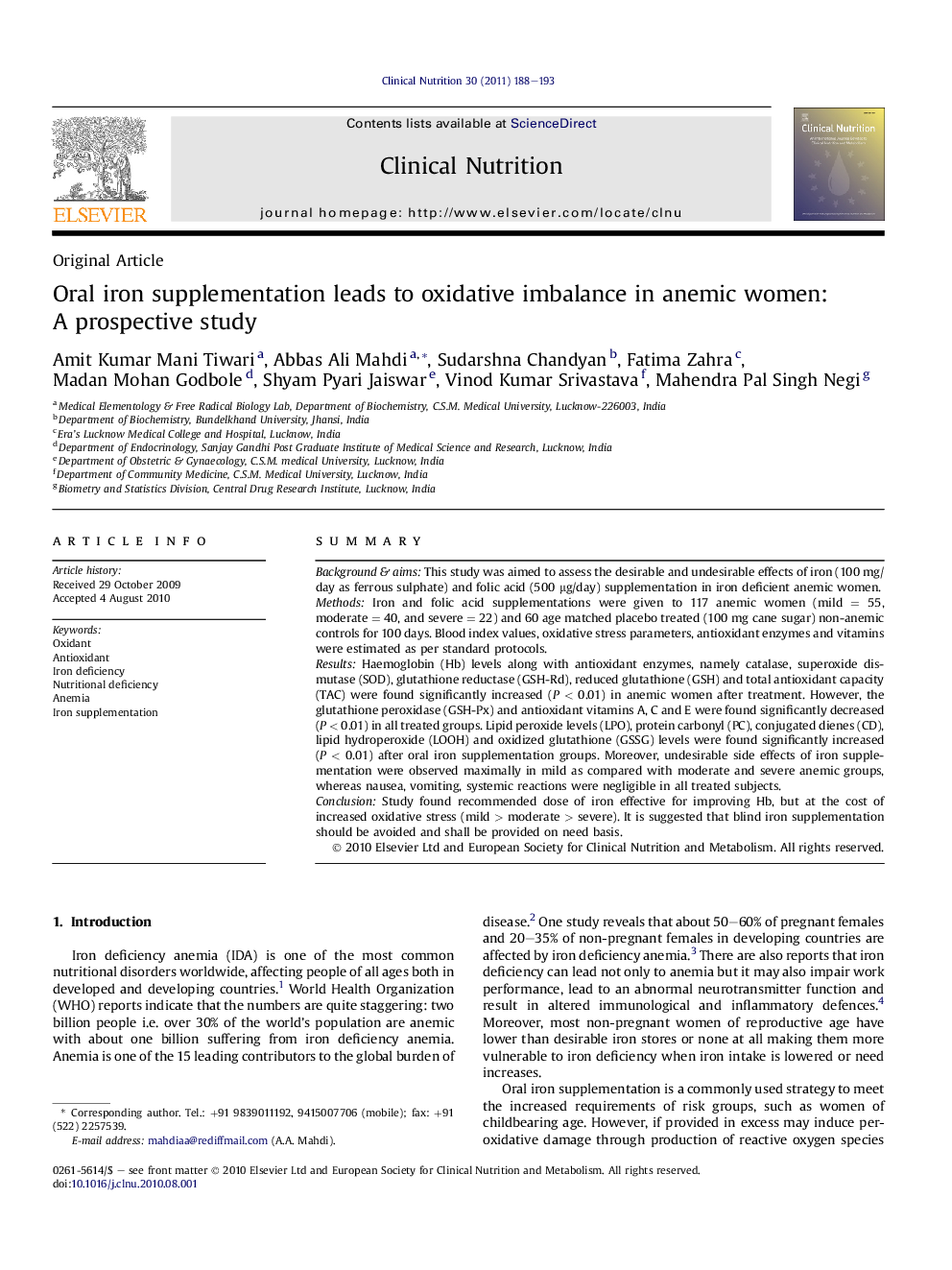| Article ID | Journal | Published Year | Pages | File Type |
|---|---|---|---|---|
| 2684129 | Clinical Nutrition | 2011 | 6 Pages |
SummaryBackground & aimsThis study was aimed to assess the desirable and undesirable effects of iron (100 mg/day as ferrous sulphate) and folic acid (500 μg/day) supplementation in iron deficient anemic women.MethodsIron and folic acid supplementations were given to 117 anemic women (mild = 55, moderate = 40, and severe = 22) and 60 age matched placebo treated (100 mg cane sugar) non-anemic controls for 100 days. Blood index values, oxidative stress parameters, antioxidant enzymes and vitamins were estimated as per standard protocols.ResultsHaemoglobin (Hb) levels along with antioxidant enzymes, namely catalase, superoxide dismutase (SOD), glutathione reductase (GSH-Rd), reduced glutathione (GSH) and total antioxidant capacity (TAC) were found significantly increased (P < 0.01) in anemic women after treatment. However, the glutathione peroxidase (GSH-Px) and antioxidant vitamins A, C and E were found significantly decreased (P < 0.01) in all treated groups. Lipid peroxide levels (LPO), protein carbonyl (PC), conjugated dienes (CD), lipid hydroperoxide (LOOH) and oxidized glutathione (GSSG) levels were found significantly increased (P < 0.01) after oral iron supplementation groups. Moreover, undesirable side effects of iron supplementation were observed maximally in mild as compared with moderate and severe anemic groups, whereas nausea, vomiting, systemic reactions were negligible in all treated subjects.ConclusionStudy found recommended dose of iron effective for improving Hb, but at the cost of increased oxidative stress (mild > moderate > severe). It is suggested that blind iron supplementation should be avoided and shall be provided on need basis.
